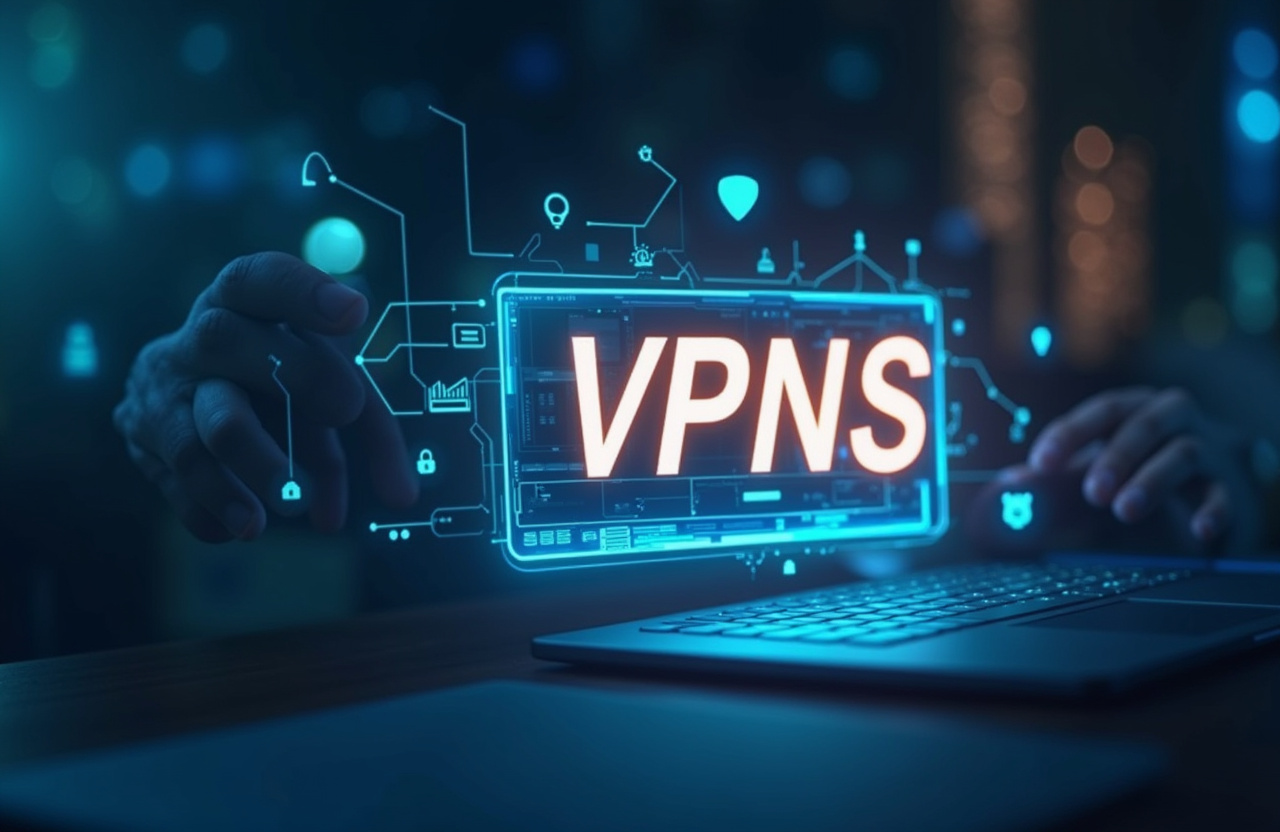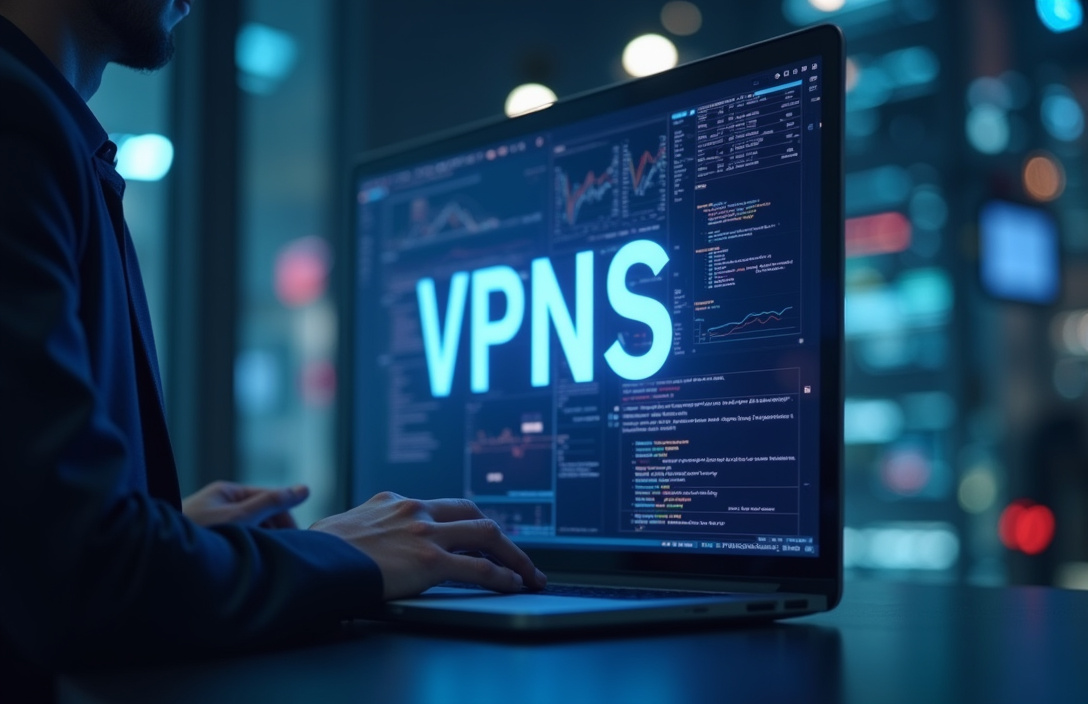VPNs for Digital Marketing Campaigns: Securing Promotional Data

Table of Contents
VPNs for Digital Marketing Campaigns: Securing Promotional Data
In the dynamic landscape of digital marketing, where campaigns are meticulously crafted and data-driven strategies reign supreme, the security of promotional data has become paramount. The modern marketer navigates a complex digital ecosystem, relying on a constant flow of information, from customer demographics and market research to creative assets and campaign performance metrics. This wealth of data, the lifeblood of successful campaigns, is increasingly vulnerable to cyber threats, making the implementation of robust security measures not just a best practice, but an absolute necessity.
A Digital Marketing VPN, specifically tailored for the needs of marketing professionals, provides a crucial layer of protection against data breaches, unauthorized access, and intellectual property theft. It accomplishes this by creating an encrypted tunnel for all internet traffic, effectively masking your IP address and location, making it significantly harder for malicious actors to intercept your marketing data or track your online activities. The importance of securing promotional data cannot be overstated.
Imagine the implications of a competitor gaining unauthorized access to your meticulously planned marketing calendar, revealing sensitive launch dates, targeted demographics, and carefully crafted messaging. Such a breach could provide them with a significant competitive advantage, allowing them to preempt your efforts, undermine your strategies, and potentially steal market share. Furthermore, the loss of customer data, such as email addresses, purchase histories, or demographic information, can severely damage your brand's reputation and erode customer trust.
In an era where data privacy is a major concern for consumers, a data breach can lead to significant financial penalties, legal ramifications, and long-term damage to your brand's image. Therefore, safeguarding promotional data is not merely a matter of protecting proprietary information; it's about upholding ethical standards, maintaining customer trust, and ensuring the long-term success of your marketing efforts. The use of a VPN in this context extends beyond simple privacy; it's about Strategy Protection, ensuring that your carefully formulated plans and innovative ideas remain shielded from competitors and other entities with vested interests.
Consider the potential damage of a competitor gaining access to your upcoming product launch strategy, your pricing models, or the creative direction of your next advertising campaign. Such a breach could lead to lost market share, diminished brand reputation, and significant financial setbacks. Furthermore, the anonymity offered by a VPN empowers marketers to conduct research and gather intelligence without revealing their identity or intentions, a crucial advantage in competitive intelligence gathering.
The ability to analyze competitor websites, social media campaigns, and advertising strategies without leaving a digital footprint can provide valuable insights and inform your own marketing decisions. The ever-growing sophistication of cyberattacks necessitates a proactive approach to data security. Traditional security measures, such as firewalls and antivirus software, while essential, are often insufficient to protect against targeted attacks designed to compromise sensitive marketing data.
A digital marketing VPN complements these existing security measures by adding an additional layer of encryption and anonymity, creating a more resilient security posture. In today's data-driven world, the security of promotional data is intrinsically linked to brand reputation and customer trust. A data breach can not only expose sensitive marketing strategies but also compromise customer information, leading to a loss of confidence in the brand.
By investing in a robust VPN solution, digital marketers demonstrate a commitment to protecting both their own intellectual property and the privacy of their customers, fostering stronger relationships and building brand loyalty. The implementation of a VPN for marketing also provides a practical solution to challenges such as geo-targeting testing and social media management across multiple regions. By masking their location, marketers can simulate user experiences from different countries, ensuring campaigns are optimized for specific target audiences and complying with local regulations.
In conclusion, the digital marketing VPN is no longer a luxury but a fundamental tool for securing promotional data, protecting strategy, safeguarding intellectual property, and maintaining a competitive edge in the increasingly complex and threat-laden digital landscape. Its deployment is a critical step in ensuring the success and sustainability of any modern marketing effort. Without it, marketers risk exposing sensitive information to malicious actors, undermining their campaigns, and damaging their brand's reputation.
By embracing a VPN as a core component of their security strategy, digital marketers can navigate the digital world with confidence, knowing that their promotional data is protected.
Second section subtitle
The proliferation of remote work within the marketing industry has further amplified the need for enhanced security measures, with VPNs serving as a critical safeguard in this new paradigm. As marketing teams become increasingly distributed, relying on remote access to sensitive data and collaborative platforms, the risk of data breaches increases significantly. Remote workers often connect to the internet through unsecured networks, such as public Wi-Fi hotspots in cafes, airports, or co-working spaces, making them vulnerable to eavesdropping and man-in-the-middle attacks.
These attacks can allow cybercriminals to intercept sensitive data, such as login credentials, client information, and proprietary marketing plans, as it is transmitted over the network. A digital marketing VPN provides a secure and encrypted connection, ensuring that all data transmitted between the remote worker's device and the company's network remains confidential and protected from unauthorized access. This is especially crucial when dealing with confidential client data, campaign performance reports, and Intellectual Property related to upcoming product launches or product development, all of which are highly valuable targets for competitors or malicious actors.
Furthermore, a VPN can help enforce consistent security policies across all remote workers, regardless of their location or the security of their local network. By requiring all remote workers to connect through a VPN, companies can ensure that security protocols are uniformly applied, minimizing the risk of human error and reducing the attack surface. This is particularly important in the context of digital marketing, where employees may be using a variety of devices and applications to access and manipulate sensitive data.
Moreover, a centrally managed VPN solution can provide administrators with visibility into the security posture of remote workers, allowing them to monitor network activity, detect potential threats, and enforce security policies proactively. Beyond the benefits for remote teams, VPNs also play a crucial role in protecting data during international travel. Marketing professionals often attend conferences, conduct market research, and engage with clients in different countries, increasing their exposure to potentially hostile networks and surveillance activities.
In some countries, internet access may be restricted, or government surveillance may be prevalent. A VPN allows marketers to securely access sensitive data and communicate with colleagues without fear of interception, ensuring that proprietary information remains confidential, no matter their location. This is especially important when traveling to countries with known cybersecurity risks or where data privacy laws are lax.
Data privacy regulations, such as GDPR (General Data Protection Regulation) and CCPA (California Consumer Privacy Act), impose strict requirements on the handling of personal data. A VPN can assist in complying with these regulations by encrypting data in transit, reducing the risk of data breaches that could lead to significant fines and reputational damage. By encrypting all internet traffic, a VPN helps ensure that personal data is protected from unauthorized access or disclosure, both within and outside the organization.
This is crucial for marketing teams that collect and process customer data as part of their marketing campaigns. The use of mobile devices in digital marketing has also created new security challenges. Marketers often access sensitive data on their smartphones and tablets, making them vulnerable to mobile malware and phishing attacks.
A VPN can encrypt the data transmitted on these devices, mitigating the risk of data breaches and protecting Intellectual Property from being compromised. Many VPN providers offer dedicated mobile apps that can be easily installed and configured on smartphones and tablets, providing a seamless and secure browsing experience. Increasingly, digital marketing involves the collection and analysis of large volumes of data, often stored in cloud-based platforms such as Amazon Web Services (AWS), Google Cloud Platform (GCP), or Microsoft Azure.
A VPN can secure the connection to these cloud services, preventing unauthorized access to sensitive data and ensuring that data remains protected from external threats. By creating an encrypted tunnel between the marketing team's devices and the cloud servers, a VPN helps ensure the confidentiality and integrity of data stored in the cloud. The ability to mask IP addresses with a VPN is critical for affiliate marketers, SEO specialists, and those engaged in competitive research.
VPNs can bypass geo-restrictions, enabling data gathering from diverse regions, validating ad placements, and anonymously assessing competitor strategies, optimizing marketing performance and expanding reach. By deploying a comprehensive VPN strategy, organizations empower their marketing teams to collaborate effectively, access sensitive data securely, and comply with data privacy regulations, regardless of location, device, or network. This is a necessary investment to safeguard promotional data, protect strategy, and maintain a competitive edge.
Third section subtitle
The concept of 'promotional data security' extends beyond simple encryption; it requires a holistic approach that encompasses data governance, access control, and risk management. A digital marketing VPN is an integral part of this broader security framework, providing a technical solution to protect data in transit and enforce access control policies. However, the effectiveness of a VPN depends on its proper implementation and integration with existing security measures.
An organization's data governance policy should clearly define the types of data that require VPN protection, the individuals who are authorized to access this data, and the security protocols that must be followed when handling sensitive information. This policy should also outline the procedures for reporting data breaches and the consequences of violating security policies. Without a well-defined data governance policy, a VPN may be implemented inconsistently, leaving gaps in security and exposing the organization to unnecessary risks.
Access control is another critical component of promotional data security. A VPN can be configured to restrict access to sensitive data based on user roles and permissions. For example, only authorized marketing personnel should be able to access confidential client data or campaign performance reports.
By implementing granular access control policies, organizations can minimize the risk of unauthorized access and ensure that data is only accessible to those who need it to perform their job duties. This can be achieved through integration with existing identity management systems, such as Active Directory or LDAP, allowing organizations to leverage their existing user authentication and authorization infrastructure. Risk management is an ongoing process that involves identifying, assessing, and mitigating potential threats to promotional data security.
This includes conducting regular vulnerability assessments and penetration testing to identify weaknesses in the organization's security infrastructure. The results of these assessments can be used to prioritize security investments and implement appropriate mitigation measures. A VPN can help mitigate several common risks, such as man-in-the-middle attacks, data interception, and unauthorized access.
However, it is important to remember that a VPN is not a silver bullet and should be used in conjunction with other security controls, such as firewalls, intrusion detection systems, and anti-malware software. Intellectual Property (IP) Protection is a crucial consideration for digital marketing campaigns. Marketing strategies, creative content, and branding elements often represent significant investments of time and resources.
Protecting this Intellectual Property from unauthorized use or disclosure is essential for maintaining a competitive advantage. A digital marketing VPN plays a vital role in shielding this valuable IP. By encrypting data transmissions, a VPN prevents competitors from intercepting sensitive information related to marketing initiatives, advertising campaigns, and product launches.
This ensures that confidential strategies remain protected, safeguarding the organization's competitive edge. Furthermore, a VPN's ability to mask IP addresses offers marketers anonymity when conducting research or monitoring competitor activities. This prevents competitors from identifying and potentially disrupting the research process.
Securely managing and transferring creative assets – logos, images and video – is also a concern, a VPN’s encrypted connection ensures these are protected from unauthorized access during transfer protecting ownership and strategy. In addition to technological measures, employee training is crucial for ensuring promotional data security. Employees should be trained on how to use a VPN properly, how to identify and avoid phishing attacks, and how to report security incidents.
Regular security awareness training can help employees understand the importance of data security and their role in protecting sensitive information. This training should also cover topics such as password hygiene, data handling procedures, and social engineering tactics. Phishing simulations can also be used to test employees' ability to identify and avoid phishing attacks.
Strategy protection is an active process that necessitates continuous revision of methods in response to new threats. This means staying abreast of the most recent cyber security advances, regularly upgrading VPN software, and modifying security strategies in light of developing threats. Regular assessments can identify potential issues and ensure that protections are still in place, thereby safeguarding the data and strategy used in digital marketing.
By building a culture of security awareness, organizations can empower their employees to be an active part of the security solution, rather than a potential vulnerability. In summary, promotional data security demands multiple levels of precautions that incorporate technological and human components. The digital marketing VPN offers protection by encrypting data, but its efficiency relies on all-encompassing data governance, rigorous access restrictions, complete risk management protocols, and consistent worker education to ensure the information created and used in digital marketing is protected.
Fourth section subtitle
When selecting a VPN for marketing purposes, there are several key considerations that should guide your decision-making process. Not all VPNs are created equal, and choosing the right VPN can have a significant impact on your security posture and overall marketing effectiveness. One of the most important factors to consider is the VPN's security protocols and encryption standards.
Look for VPNs that use strong encryption algorithms, such as AES-256, and support secure protocols such as OpenVPN, IKEv2/IPsec, or WireGuard. These protocols are known for their robustness and ability to protect data from eavesdropping and tampering. Avoid VPNs that use outdated or weak encryption protocols, as they may be vulnerable to attacks.
Another crucial factor is the VPN provider's logging policy. A reputable VPN provider should have a clear and transparent no-logs policy, meaning that they do not track or store any information about your online activities, including your browsing history, IP address, or connection timestamps. Carefully review the VPN provider's privacy policy to ensure that they do not collect or share your data with third parties.
Be wary of free VPNs, as they often monetize their services by collecting and selling user data. The location of the VPN provider is also an important consideration. VPN providers that are based in countries with strong data privacy laws, such as Switzerland or Iceland, are generally more trustworthy than those based in countries with lax data privacy laws or that are members of surveillance alliances like the 5 Eyes, 9 Eyes, or 14 Eyes.
These alliances allow governments to share intelligence and surveillance data, which could potentially compromise the privacy of VPN users. The speed and reliability of the VPN connection are also critical factors, especially for marketing teams that rely on VPN access for daily tasks. Look for VPNs that have a large network of servers located in various countries around the world.
This will allow you to connect to a server that is geographically close to your location, minimizing latency and improving connection speeds. Test the VPN's performance by conducting speed tests and browsing websites to ensure that it meets your needs. User-friendliness is another important consideration, especially for marketing teams that may not have extensive technical expertise.
Choose a VPN that has a user-friendly interface and is easy to set up and configure. Many VPN providers offer dedicated apps for various operating systems, such as Windows, macOS, iOS, and Android, making it easy to connect to the VPN from any device. Customer support is also an essential factor to consider.
Choose a VPN provider that offers responsive and helpful customer support, preferably through multiple channels such as email, live chat, or phone. This will ensure that you can get assistance quickly if you encounter any issues with the VPN. Read online reviews and check the VPN provider's reputation before making a decision.
Look for feedback from other marketing professionals who have used the VPN for similar purposes. This will give you valuable insights into the VPN's performance, reliability, and customer support. The scalability of the VPN solution is also an important consideration, especially for growing marketing teams.
Choose a VPN provider that offers flexible pricing plans and can accommodate the changing needs of your organization. Ensure that the VPN solution can support the number of users and devices that you need, and that it can be easily scaled up or down as your business evolves. Finally, consider the VPN's compatibility with other marketing tools and platforms.
Ensure that the VPN is compatible with the marketing software, analytics platforms, and social media tools that your team uses on a daily basis. This will ensure a seamless and efficient workflow, without any compatibility issues that could hinder productivity. In summary, selecting the right VPN for digital marketing requires careful consideration of various factors, including security protocols, logging policy, location, speed, user-friendliness, customer support, scalability, and compatibility.
By carefully evaluating these factors, you can choose a VPN that provides robust security, reliable performance, and seamless integration with your existing marketing tools, ultimately protecting your promotional data and maximizing your marketing effectiveness.
The proactive implementation of VPN technology within digital marketing campaigns represents a significant stride towards not only safeguarding sensitive promotional data but also bolstering strategy protection and preserving Intellectual Property. However, the mere deployment of a VPN solution is insufficient; its effectiveness hinges on the formulation and consistent enforcement of clear, comprehensive security policies and protocols. These policies act as a roadmap, guiding marketing teams in the proper utilization of VPNs and outlining best practices for data handling and secure communication.
A robust security policy should explicitly address the types of data that mandate VPN protection, encompassing confidential client information, proprietary marketing strategies, creative assets, campaign performance metrics, and financial data. The policy should delineate which employees or roles require VPN access, ensuring that only authorized personnel can access sensitive data. Furthermore, it should mandate the consistent use of VPNs when accessing marketing data remotely, especially when connecting through unsecured networks such as public Wi-Fi hotspots.
The security policy should also encompass guidelines for password management, emphasizing the importance of strong, unique passwords and discouraging the reuse of passwords across multiple accounts. It should mandate the use of multi-factor authentication (MFA) where available, adding an extra layer of security by requiring users to verify their identity through a second factor, such as a one-time code sent to their mobile device. This significantly reduces the risk of unauthorized access, even if a password is compromised.
Regular security awareness training is paramount to ensure that marketing teams are well-versed in the security policies and protocols. This training should cover topics such as phishing awareness, social engineering tactics, malware prevention, and data handling best practices. Employees should be taught how to identify and report suspicious activity, and they should be regularly reminded of the importance of adhering to security policies.
The ongoing monitoring and auditing of VPN usage is critical to detect and address any potential security vulnerabilities. Organizations should implement systems to track VPN connection logs, monitor for unusual activity, and identify any unauthorized access attempts. Regular security audits can help identify weaknesses in the security infrastructure and ensure that security policies are being followed.
Remediation plans should be in place to quickly address any identified vulnerabilities or security breaches. Beyond technical and policy measures, fostering a culture of security within the marketing team is essential. This means promoting open communication about security concerns, encouraging employees to report suspicious activity, and recognizing and rewarding security-conscious behavior.
A strong security culture can significantly enhance the effectiveness of security policies and protocols, creating a more resilient security posture. The integration of VPNs with other security tools and technologies is crucial to create a layered security approach. VPNs should be integrated with firewalls, intrusion detection systems, and anti-malware software to provide comprehensive protection against various threats.
This layered approach ensures that multiple security measures are in place to protect sensitive data, even if one layer is compromised. Regular review and updating of security policies and protocols are essential to keep pace with the evolving threat landscape. New threats emerge constantly, and organizations must adapt their security measures accordingly.
Security policies and protocols should be reviewed and updated at least annually, or more frequently if necessary, to ensure that they remain effective. Staying informed about the latest cybersecurity trends and threats is crucial for making informed decisions about security investments and policy updates. Collaboration with cybersecurity experts and participation in industry forums can provide valuable insights and best practices.
In conclusion, securing digital marketing campaigns with VPNs requires a holistic approach that encompasses technology, policies, training, monitoring, and culture. By implementing a comprehensive security strategy, organizations can significantly reduce the risk of data breaches, protect their strategy protection, preserve Intellectual Property, and maintain a competitive edge in the dynamic digital marketing landscape. The proactive and continuous improvement of security measures is essential to ensure the long-term success and sustainability of marketing efforts.
The integration of these measures ensures that the investment in digital marketing efforts is protected by a secure and robust infrastructure.
Stay Updated
Get the latest VPN news, tips, and exclusive deals to your inbox.




